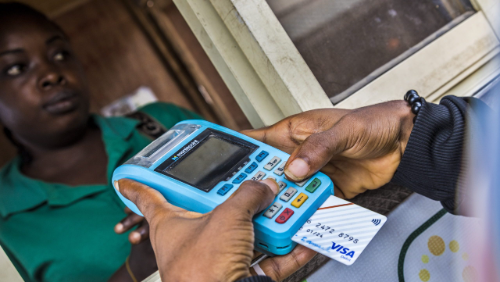Moniepoint Employees Cash Out as Secondary Share Sales Gain Traction

TLDR
- When Moniepoint raised $110 million in October 2024, two senior employees sold a portion of their equity for $20,000 and $850,000 (₦1.3 billion)
- This marked the second time employees at the fintech unicorn have been allowed to sell shares during a fundraising round—the first was in 2022
- Only employees with at least three years of tenure were eligible to participate, and limits were placed on how much could be sold
When Moniepoint raised $110 million in October 2024, two senior employees sold a portion of their equity for $20,000 and $850,000 (₦1.3 billion), respectively, according to documents reviewed by TechCabal. This marked the second time employees at the fintech unicorn have been allowed to sell shares during a fundraising round—the first was in 2022.
The share sale was announced internally during town hall meetings and facilitated through Carta, a platform for managing startup equity. Only employees with at least three years of tenure were eligible to participate, and limits were placed on the amount that could be sold—the employee who earned $850,000 sold only a third of their vested shares.
The shares were sold at a discounted rate to the company’s unicorn valuation, which is common in secondary transactions. Employee equity at Moniepoint vests over four years, with 25% vesting annually.
As traditional exits like IPOs remain rare in African tech, secondary share sales are emerging as a way for employees to realize value from equity compensation. The practice is still uncommon, but examples like Moniepoint and Arnergy point to a gradual cultural shift in how talent is rewarded in Africa’s startup ecosystem.
Daba is Africa's leading investment platform for private and public markets. Download here
Key Takeaways
Moniepoint’s employee secondary sale underscores a broader trend in African tech: as companies stay private longer, employee liquidity is becoming more critical. In regions where exits via public markets or acquisitions are limited, structured secondary sales offer a viable alternative to reward early employees and retain top talent. Equity has traditionally been underutilized in African startups, largely due to limited understanding and a lack of exit pathways. But that is changing. Increasingly, startups are adopting formal vesting schedules, utilizing platforms like Carta, and incorporating share liquidity as part of their long-term compensation packages. Moniepoint’s use of secondary sales as a retention tool shows a growing awareness that competitive hiring in Africa’s tech space extends beyond salary. Still, these opportunities remain rare. Most employee shares are illiquid, and access to secondaries is often limited to senior staff. For equity to become a widespread incentive, more startups will need to build structures that democratize ownership and offer clear paths to liquidity. As African startups mature and attract growth-stage capital, employee equity may evolve from a symbolic perk to a real source of wealth creation, helping build not just companies but long-term careers.

Next Frontier
Stay up to date on major news and events in African markets. Delivered weekly.
Pulse54
UDeep-dives into what’s old and new in Africa’s investment landscape. Delivered twice monthly.
Events
Sign up to stay informed about our regular webinars, product launches, and exhibitions.




